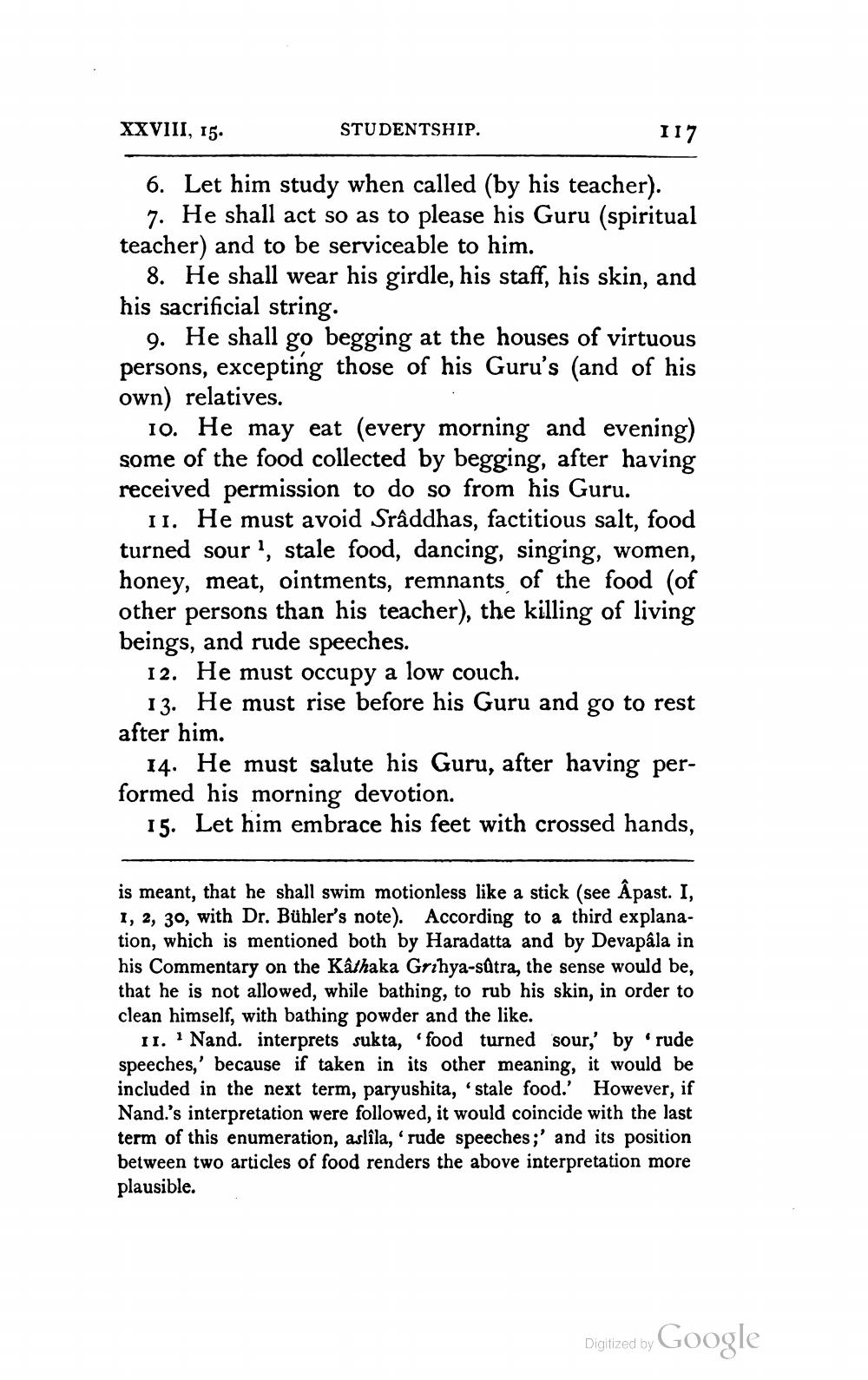________________
XXVIII, 15.
STUDENTSHIP.
117
6. Let him study when called (by his teacher).
7. He shall act so as to please his Guru (spiritual teacher) and to be serviceable to him.
8. He shall wear his girdle, his staff, his skin, and his sacrificial string.
9. He shall go begging at the houses of virtuous persons, excepting those of his Guru's (and of his own) relatives.
10. He may eat (every morning and evening) some of the food collected by begging, after having received permission to do so from his Guru.
II. He must avoid Sraddhas, factitious salt, food turned sour', stale food, dancing, singing, women, honey, meat, ointments, remnants of the food (of other persons than his teacher), the killing of living beings, and rude speeches.
12. He must occupy a low couch.
13. He must rise before his Guru and go to rest after him.
14. He must salute his Guru, after having performed his morning devotion.
15. Let him embrace his feet with crossed hands,
st. 1,
is meant, that he shall swim motionless like a stick (see 1, 2, 30, with Dr. Bühler's note). According to a third explanation, which is mentioned both by Haradatta and by Devapala in his Commentary on the Kathaka Grihya-sútra, the sense would be, that he is not allowed, while bathing, to rub his skin, in order to clean himself, with bathing powder and the like.
II. ' Nand. interprets sukta, 'food turned sour,' by rude speeches,' because if taken in its other meaning, it would be included in the next term, paryushita, stale food. However, if Nand's interpretation were followed, it would coincide with the last term of this enumeration, aslîla, rude speeches;' and its position between two articles of food renders the above interpretation more plausible.
Digitized by
Digitized by Google




